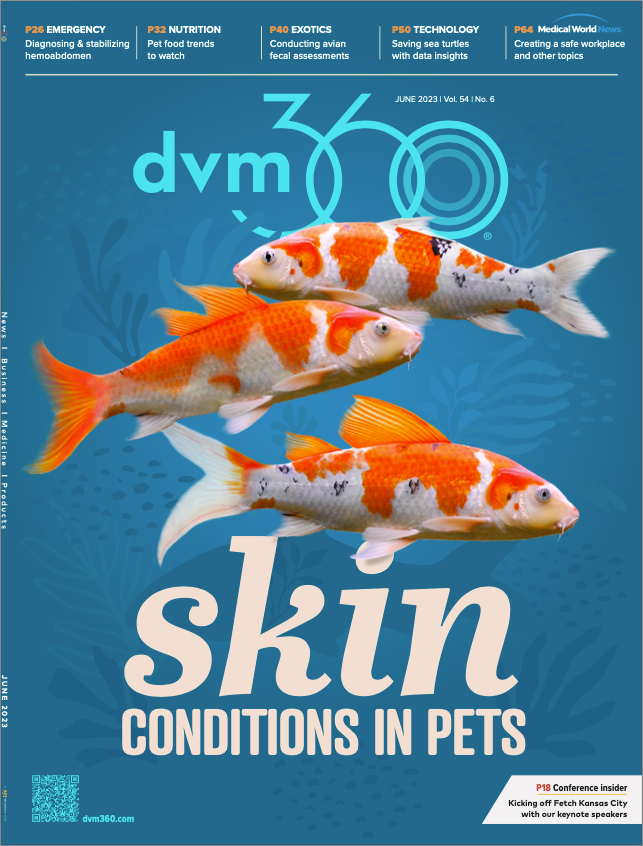Career advice for new graduates
There are multiple factors to be considered when choosing a new job
Kiattisak / stock.adobe.com

Content submitted by Heart + Paw, a dvm360® Strategic Alliance Partner
Many veterinarians consider their work a calling—not just a job. Couple that with how much time work occupies in our lives (an average adult spends approximately one-third of their life, or more than 90,000 hours, at work), and one can see the importance of finding an ideal workplace fit.1 How do you make that magic fit happen? It takes intentional, systematic self-reflection and thorough evaluation of the potential career choice.
Consider your criteria
William Shakespeare captured the first step to career success in Hamlet: “To thine own self be true.” Take some time to create a list of your needs and wants in order of importance. Some criteria to consider may include geography, quality of medicine, scheduled working hours, species served, equipment, compensation, paid time off, benefits, continuing education allowances, handling philosophy, appointment length, schedule structure, and mentorship and training programs. The importance and priority of your criteria can only be determined for yourself and could involve many other factors than the examples listed. Before looking for work or evaluating an offer, it is worth setting aside time to solidify what matters most.
Meet the team
When considering employment opportunities, video and phone interviews have their place; however, before making a decision, an in-person visit is a must. Spend at least 2 hours observing the team. You will get a feel for anesthetic protocols, team skill set, level of medicine, team dynamics, overall cleanliness, organization, and culture. If mentorship is important to you, ask about the specifics of the mentorship or training program. Ensure that the level of structure available is compatible with your coaching needs. Compare your observations and the specifics of the job offer to your priorities list. There is no such thing as a perfect practice, just one that fits you best.
Get it in writing
Once you have decided on a match, ensure you have the agreement in writing. The best way to protect yourself and your relationship with a new employer is to have absolute clarity about the details. Having an independent party, such as an attorney or school counselor review the contract may be helpful to ensure it actually means what you believe it says.
Create a life outside of work
Remember that your job is not your entire life. You may benefit from mentorship outside of the clinic, or even the profession. There is a greater professional world out there, with local specialists, state veterinary medical associations, the American Veterinary Medical Association (AVMA), local business associations, charities, and more. Look for someone who has achieved the career success or some aspect of success to which you aspire and ask them to share their journey. Most of us enjoy talking about ourselves and our passions. The connections you make can be a source of support, development, and lasting friendship.
Have fun
Invest in yourself outside of work with non-work-related friends and hobbies. Leisure activity is a must. A study published in the Journal of Vocational Behavior in March 2020 showed that individuals with regular nonwork-related leisure activities have greater confidence in their occupational abilities.2 Additionally, investigators at San Francisco State University in California have shown that individuals who regularly engage in creative activities outside of work experience a 15% to 30% boost in effectiveness at work.3
Stay curious
Lastly, remember that you are not stuck. The veterinary unemployment rate was 0.5% in 2002, according to the AVMA.4 There are many opportunities available. If you’re not feeling like a good fit, talk to your employer about what may be possible. If all else fails, look for that next step using what you’ve learned in your current role to make a more informed choice in your next move. After all, our veterinary oath includes the obligation to “continual improvement of professional knowledge,” which is really only possible when in a comfortable environment.5
Julie N. Sanders, DVM, is a director of operations for Heart + Paw. She graduated from the Virginia-Maryland College of Veterinary Medicine in Blacksburg, and is a student mentor, and a member of the American Veterinary Medical Association’s Council on Veterinary Service and her alumni board of directors. She maintains her clinical skills through emergency practice and volunteer shelter work. Sanders enjoys traveling and riding motorcycles with her husband and his son. They share their home with a greater Swiss mountain dog and a tuxedo cat.
References
- Pryce-Jones J. Happiness at Work: Maximizing Your Psychological Capital for Success. 1st ed. Wiley; 2010.
- Kelly CM, Strauss K, Arnold J, Stride C. The relationship between leisure activities and psychological resources that support a sustainable career: the role of leisure seriousness and work-leisure similarity. J Vocat Behav. 2020;117:103340. doi:10.1016/j.jvb.2019.103340
- Eschleman KJ, Madsen J, Alarcon G, Barelka A. Benefiting from creative activity: the positive relationships between creative activity, recovery experiences, and performance-related outcomes. J Occup Organ Psychol. 2014;87(3):579-598. doi:10.1111/joop.12064
- Larkin M. Veterinarian employers require innovative solu- tions to attract, retain staff members. American Veterinary Medical Association. October 25, 2022. Accessed May 19, 2023. www.avma.org/news/veterinarian-employers-re- quire-innovative-solutions-attract-retain-staff-members
- Veterinarian’s oath. American Veterinary Medical Association. Accessed May 21, 2023. www.avma.org/ resources-tools/avma-policies/veterinarians-oath
